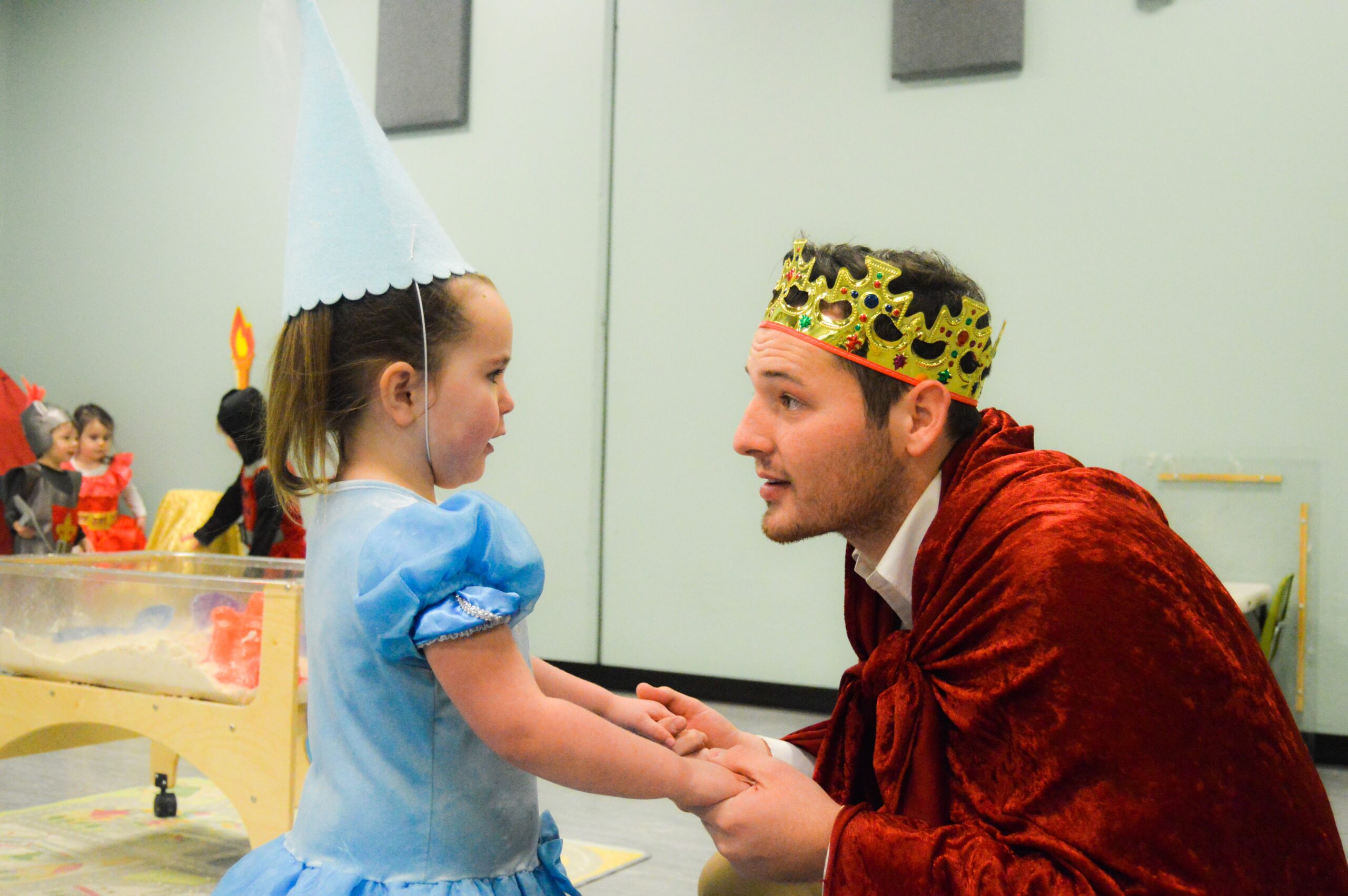
“Being considerate of others will take your children further in life than any college degree.” ―Marian Wright EdelmanWhile ABC’s and 123’s are the building blocks on the road to academic learning, manners are the foundation for building healthy relationships and social interactions. Children begin learning manners before they can even talk. But even if your highchair munchkin wasn’t signing please and thank you for those Cheerios, preschool is a great stage in life to start teaching them social graces.
So what are manners?
Manners are treating other people in a respectful way, like we ourselves would like to be treated. This common idea is taught in cultures all over the world. Studies have also found that oxytocin is released in the brain when someone treats us with kindness, respect, and compassion. Our brains are wired to want to be treated this way.
As you teach a child manners, modeling is the best tool you have. Be conscientious of your own manners and consideration for others. It’s okay to prompt, “What do you say?”, and to be insistent. “You can have the treat after you say please.” Just remember, the goal is to create a mutual feeling of respect for others, so whatever you do to teach manners, keep it caring and fun.
8 Fun Ways You Can Teach Manners
1- Play Pretend
Children love to pretend! Role playing and modeling manners while playing things like princess/prince, restaurant, school, store, airplane or theater. At snack and meal times you can be animals with manners and contrast animals without manners.
2- I Spy Manners
When you leave the house, be spies on the lookout for people showing good manners.
“I spy someone holding the door for us when we walk in the store.”
“I spy someone letting us go in front of them into the elevator.”
“I spy someone saying excuse me when our shopping cart was in their way.”
3- Host a Tea Party
Cucumber sandwiches and strawberry lemonade in a fancy plastic cup can create a fun atmosphere to practice polite eating. Invite some friends and give some quick instructions on where to place the napkin and how to hold the plastic goblet. Turn on some Mozart and let the fine dining begin.
4- Make it a Contest
For that child with a competitive edge, have a contest during meal time or throughout the day to see who can count the most manners they see or do. Tally up those “please” and “thank you’s.” Winner gets to pick the music for dish clean-up.
5- Thank You Cards
Crafting cards is a great way to say thank you. Children can make cards for gifts they’ve received, for kindnesses shown, and for people who serve them. Make a picture for a teacher or a crossing guard. Make a card for a friend who had them over for a fun playdate.
6- “I See You”
It’s amazing how the kiddos are perfectly fine doing their own thing…until you need to talk to another adult. Then, suddenly, they will practically die if they don’t have a word with you right now! One fun way for kids to practice the art of patiently waiting is to have them put their hand on your arm when they see you are having a conversation with another adult and need to speak with you. You can then put your hand on theirs, silently signaling, “I see you.” Then, find a break in the conversation to politely excuse yourself while you let your child have a turn to speak.
7- Staring Contest
Learning how to look someone in the eyes while you’re speaking to them can be hard even for adults. Playing staring contest can make the challenge a little more fun. Try having a whole conversation without looking away. Once they’ve mastered it at home, you can encourage them to use the skill when they are talking to others.
8- Well, Thank You!
A fun tuck-in game is to go back and forth complimenting each other, including good things that happened during the day. While you’re playing, you can model graciously accepting a compliment. Kids love it when compliments get a little silly too. “I loooove the way your toes wiggle.”
Manners matter. Teaching your child how to treat others with kindness and respect will not only help them in their school and social environments, but will open doors for the future success.
We have committed the golden rule to memory; let us now commit it to life.
Edwin Markham, American poet (1852-1940)
